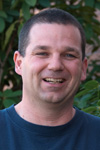By Christopher Wallis, CADRE Chair
In many ways, there are great similarities between getting a position as a scientist with the federal government (such as USDA-ARS) and other positions. However, there are some things you can do to stand out to get through to the interview process and, ultimately, be hired for the desired position.

 Below are some words of advice, both generic and specific, from Mark Mazzola, USDA-ARS in Wenatchee, WA, and Walt Mahaffee, USDA-ARS in Corvallis, OR, for applying to scientist positions in the federal government, especially with the USDA-ARS.
Below are some words of advice, both generic and specific, from Mark Mazzola, USDA-ARS in Wenatchee, WA, and Walt Mahaffee, USDA-ARS in Corvallis, OR, for applying to scientist positions in the federal government, especially with the USDA-ARS.
Generic advice for (almost) all positions, not just government ones.
Be aware that networking often can lead to obtaining a position. Network especially with those who are where you want to be. An example might be to attend and actively participate in the APS committee of your field. Be a productive colleague and collaborator as a student and post-doc. Do not be afraid to apply for positons that may seem out of your field, as many positions are written generic on purpose and you may fit much better in a position than you could ever imagine.
Search early and often.
Keep an eye on open positions by looking in the appropriate locations (e.g. USAjobs.gov). Keep in mind that some positions open and close in just a week or two, so always be ready and prepared to apply. Gather up pdf copies of your transcripts, SF50 forms (if employed by the Federal government), immigration status, draft registration number, abstracts of thesis and/or dissertation. A short time frame does not mean the group has someone in mind.
Follow instructions.
Be sure to include all requested forms in the application, and turn in the application by the due date (but likely much earlier). For USDA jobs, there must be written responses to all KSAs (Knowledge, Skills, and Abilities). Address every listed KSA and how you might fulfill it. (Note: There is some talk of replacing KSAs- so read all application instructions carefully!)
Write to get past the human resources office.
Use the keywords, especially in the KSAs, in your application (both the KSA statement and other materials like the cover letter) to get past the HR office. Your cover letter should present your skills and qualification in relation to the job description and not just be a restatement of your CV. Format your CV in a way that makes it clear to a non-scientist that all qualifications are met and exceeded as appropriate. This might involve re-arranging sections to match exactly what is listed and the order it is listed. Keeping things straight-forward and painless for HR can only be a positive for one’s candidacy.
Contact the research leader.
Walt mentions to contact the research leader and give a head’s up about your application, and the same applies if another scientist is conducting the search. Send the application package directly to them if they want.
Know your potential location in advance.
This is true for any position. Do your homework. Know the group, crops, and anything special about the region in relation to the job. You should have questions and/or research ideas to discuss with each individual. It would never hurt to specifically request meeting with certain individuals particularly if they are outside the unit or associated department for ARS units located on campuses. Mark mentions to really get to know your potential future colleagues before your interview (and sometimes before you apply). Think of potential “natural” collaborations with your new group, and how you will fit in with your skills. When you do your interview, it is a plus to have multiple ideas for shared research projects with at least some other scientists at the location, and at minimum have a basic knowledge of what everyone does.
Some final thoughts…
Mark mentions that taking a USDA-ARS postdoc is very beneficial if you wish to work for the federal government.
Walt mentions to stretch outside your experience when applying for positons, as you never know how well you might actually fit within a research group until you are there.
